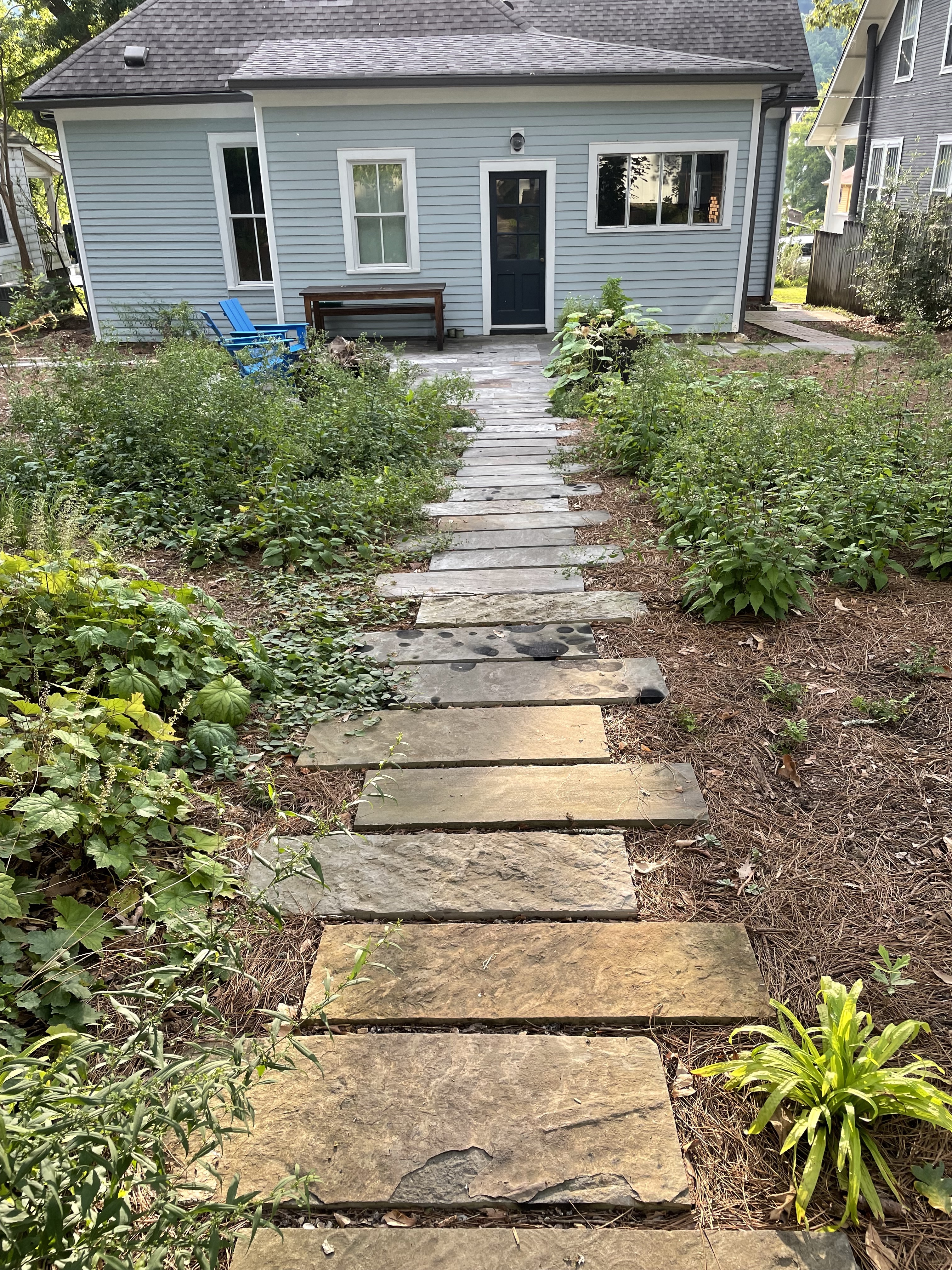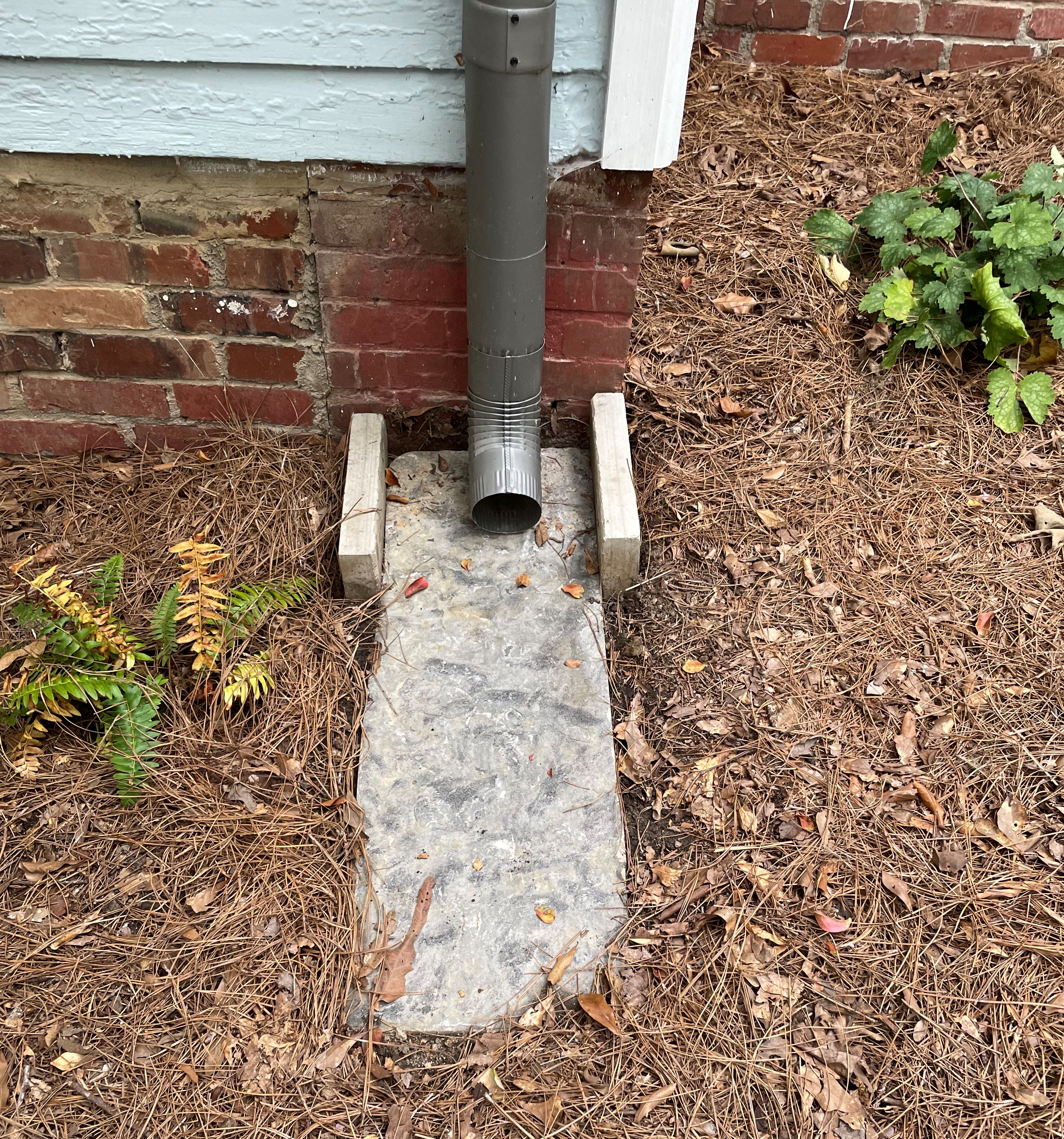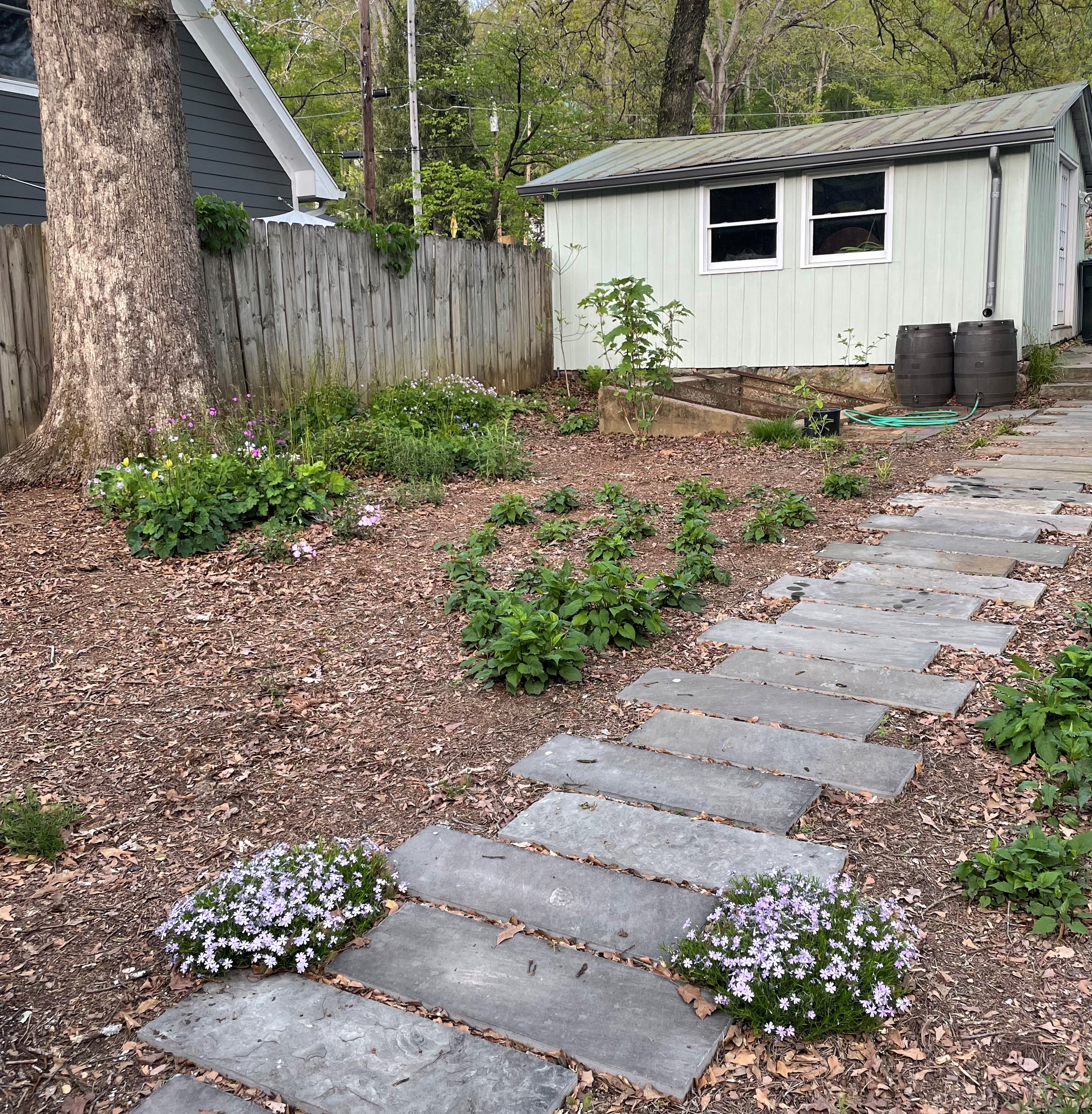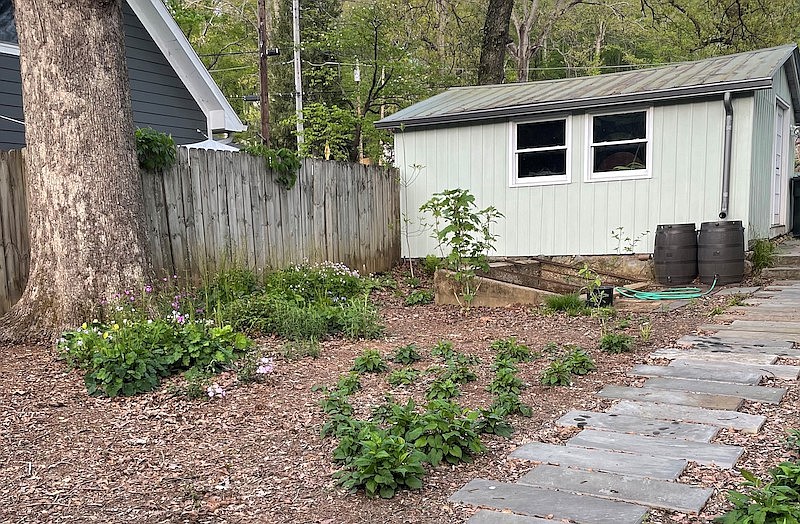Chattanooga is competing with Knoxville to see how many homeowners and elected officials the cities can encourage to eliminate or drastically reduce rainfall runoff from their property, which limits pollutants entering local waterways and alleviates burdens on the city's stormwater system.
The NoogaKnox Challenge began March 22 with the goal of getting the most people RainSmart Yard certified by the first day of fall, Sept. 22. As of Thursday afternoon, 25 Chattanoogans and 21 Knoxville residents have received the certification.
It's also an opportunity for homeowners to save up to 75% on their annual stormwater fees. In Chattanooga, single-family homes are billed at a standard rate of $183.54 per year, according to a news release from the city, which could fall to $45.88 per year if property owners receive the highest level of certification.
Homeowners can receive a bronze, silver or gold rating based on their property's condition, and depending on the rating the yard receives, residents can qualify for a 25%, 50% or 75% discount.
(READ MORE: Chattanooga plans $513 million worth of improvements to sewer infrastructure)
"This is really important in Chattanooga, where our outdated stormwater system can overflow during big storms, sending polluted runoff into the Tennessee River and surrounding streams," Chattanooga Mayor Tim Kelly said in a video posted on his Twitter page on Monday.
Mary Beth Sutton, the executive director of the Chattanooga nonprofit organization WaterWays, told the Chattanooga Times Free Press by phone Wednesday the overall goal of the program is to ensure homeowners are capturing as much rainwater on their property as possible.
After homeowners take a short online self-survey on the WaterWays website, an employee will stop by their property to inspect their yard. Those evaluations involve checking on things like the orientation of gutter downspouts and whether there are native plants present on the property, which tend to have longer root systems to soak up moisture. If residents qualify for the program, staff will return to recertify the property after two years.
 Contributed Photo by Matt Whitaker / Matt Whitaker, a local landscape architect, has received a gold rating through the RainSmart Certification program, which means he qualifies for a 75% reduction in his annual stormwater fee. He is growing native plants on his property and has taken steps to ensure that as much rainwater stays on his land as possible.
Contributed Photo by Matt Whitaker / Matt Whitaker, a local landscape architect, has received a gold rating through the RainSmart Certification program, which means he qualifies for a 75% reduction in his annual stormwater fee. He is growing native plants on his property and has taken steps to ensure that as much rainwater stays on his land as possible.Stephanie DeVries, an assistant professor of hydrology at the University of Tennessee at Chattanooga, said water only has two places to go when it rains. It can flow downward through the soil and slowly make its way to a stream, she said, or it can flow over the land until it reaches a storm drain or a channel.
"The second option is what we call runoff, and as runoff flows, it can pick up contaminants like fertilizer, oil and discarded plastics," DeVries said in an email. "Eventually, these end up in streams, so reducing residential runoff would have a direct benefit to water quality."
Because runoff reaches stream channels much faster than groundwater, she said, limiting it also has the potential to lessen the risk of flash floods and soil erosion during heavy rain.
"If it's running off, it's going straight to the storm drains and straight to the creeks and the river," Sutton said, "so whatever pollution -- whether it's just dirt, or whether it's yard chemicals, or whether it's oil off a driveway or antifreeze -- that will go directly to our streams. We don't want that to happen. The soil and the plants are great filter systems."
In its release, the city said homeowners can seek reimbursements for the installation of rain gardens and rain barrels. Discounts and reimbursements are only available for Chattanooga residents, but city officials also encourage people in Hamilton County and beyond to participate.
 Contributed Photo by Matt Whitaker / Matt Whitaker, a local landscape architect, has received a gold rating through the RainSmart Certification program, which means he qualifies for a 75% reduction in his annual stormwater fee. He is growing native plants on his property and has taken steps to ensure that as much rainwater stays on his land as possible.
Contributed Photo by Matt Whitaker / Matt Whitaker, a local landscape architect, has received a gold rating through the RainSmart Certification program, which means he qualifies for a 75% reduction in his annual stormwater fee. He is growing native plants on his property and has taken steps to ensure that as much rainwater stays on his land as possible.(READ MORE: 2021 was another rainy year in Chattanooga and the Tennessee Valley)
A resident of St. Elmo, Matt Whitaker received a gold rating on his lawn, which means all stormwater is retained on his property.
"I am a landscape architect by trade interested in things like reducing stormwater runoff and promoting native and healthy habitats," he said by phone.
Whitaker removed his lawn and has planted patches of native fauna on his land. The metal roof on his shed makes it easy to capture precipitation in rain barrels, and he has directed his downspouts so that they deposit water into the landscape. Whitaker is also holding as much water onsite as possible, which soaks into the soil and nourishes the plants and trees on his property.
Contact David Floyd at dfloyd@timesfreepress.com or at 423-757-6249. Follow him on Twitter @flavid_doyd.
 Contributed Photo by Matt Whitaker / Matt Whitaker, a local landscape architect, has received a gold rating through the RainSmart Certification program, which means he qualifies for a 75% reduction in his annual stormwater fee. He is growing native plants on his property and has taken steps to ensure that as much rainwater stays on his land as possible.
Contributed Photo by Matt Whitaker / Matt Whitaker, a local landscape architect, has received a gold rating through the RainSmart Certification program, which means he qualifies for a 75% reduction in his annual stormwater fee. He is growing native plants on his property and has taken steps to ensure that as much rainwater stays on his land as possible.